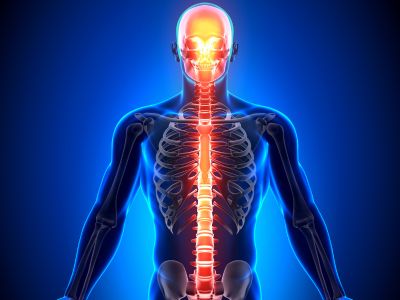Dr. Radhika Lotlikar Pathak
Consultant Neurologist
Nexxtra : Neurology Treatments Center in Pune
Neurological conditions encompass a wide range of disorders affecting the nervous system, from the brain to the spinal cord and peripheral nerves.

Neurological Conditions Affecting Mobility and Coordination
Stroke: Symptoms include sudden weakness or numbness in the face, arm, or leg, along with speech difficulties. Treatment involves prompt medical intervention to restore blood flow to the brain.
Paralysis: Causes loss of muscle function in affected areas. Treatments vary depending on the underlying cause and may include physical therapy and assistive devices.
Epilepsy: Characterized by recurrent seizures. Treatment often involves anti-seizure medications and lifestyle modifications.

Movement Disorders and Balance Issues
Parkinson’s Disease: Symptoms include tremors, stiffness, and difficulty with balance and coordination. Treatment may involve medications, physical therapy, and in advanced cases, deep brain stimulation.
Vertigo: Sensation of spinning or dizziness. Treatment depends on the underlying cause and may include medications and vestibular rehabilitation therapy.

Headaches and Pain Disorders
Headache: Various types of headaches exist, including tension headaches, migraines, and cluster headaches. Treatment options range from over-the-counter medications to prescription drugs and lifestyle changes.
Neuropathy: Nerve damage leading to numbness, tingling, and weakness. Treatment focuses on managing symptoms and addressing the underlying cause, which may include medications and physical therapy.

Neurological Conditions Affecting Muscles and Cognitive Function
Muscle Disorders: Conditions such as muscular dystrophy and myasthenia gravis can lead to muscle weakness and fatigue. Treatment may involve physical therapy, medications, and supportive devices.
Multiple Sclerosis (MS): Affects the central nervous system, leading to muscle weakness, coordination problems, and cognitive changes. Treatment aims to manage symptoms and slow disease progression through medications and therapy.
Dementia: Progressive decline in cognitive function. Treatment focuses on managing symptoms and supporting quality of life through medications, therapy, and lifestyle modifications.
When To Meet A Neurologist?
If you experience persistent or severe symptoms such as headaches, seizures, weakness, or changes in cognitive function. If you have a family history of neurological conditions or risk factors such as high blood pressure, diabetes, or smoking then book appointment with Dr. Radhika Lotlikar Pathak








Our Approach
Navigating neurological conditions requires understanding symptoms, seeking timely medical intervention, and adhering to treatment plans. Often neurological treatments involves long term medications, physical therapy along with timely follow ups.
FAQs
Common symptoms of a stroke include sudden numbness or weakness in the face, arm, or leg (especially on one side of the body), difficulty speaking or understanding speech, sudden confusion or trouble seeing, and a severe headache with no known cause. If you or someone you know experiences any of these symptoms, it’s crucial to seek immediate medical attention by calling emergency services.
Migraines often present with throbbing pain, usually on one side of the head, accompanied by sensitivity to light and sound, nausea, and sometimes visual disturbances like auras. Regular headaches are typically less severe and don’t have associated symptoms like nausea or sensitivity to light and sound.
Lifestyle changes that may help manage epilepsy include getting enough sleep, avoiding triggers such as stress and certain foods, taking medication as prescribed, and maintaining a healthy diet and regular exercise routine. It’s essential to work closely with your neurologist to develop a personalized management plan.
Temporary paralysis, often caused by conditions like Bell’s palsy or a pinched nerve, typically resolves on its own or with treatment and doesn’t cause long-term damage. However, sudden or prolonged paralysis could indicate a more serious neurological condition like stroke or spinal cord injury and requires immediate medical attention.
Appointments with Dr. Radhika Lotlikar Pathak can be scheduled by contacting our clinic directly via phone or through our website or whatsapp. Additionally, Dr. Radhika Lotlikar Pathak is available at Deenanath Mangeshkar Hospital, Erandwane, Pune.
Email Address
info.nexxtralife@gmail.com
Phone Number
+91-9075111591
Address
5th Floor, Labhade Prestige, Karve Road, Pune.

Dr. Ameya Pathak
MBBS, DNB Medicine
DrNB Clinical Immunology & Rheumatology
Consultant Rheumatologist

